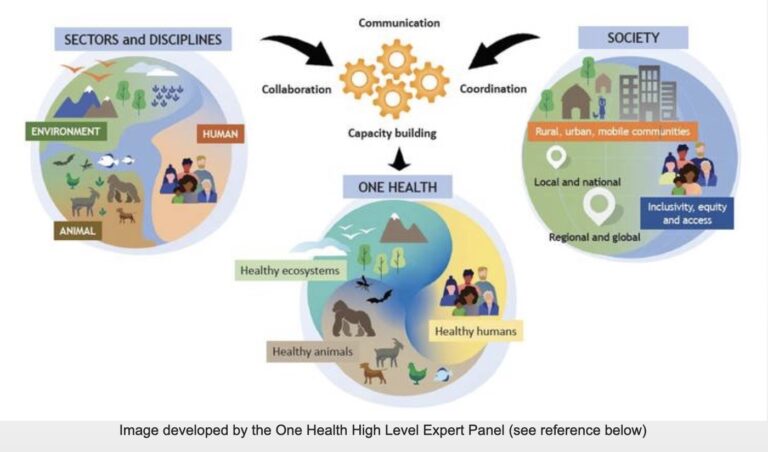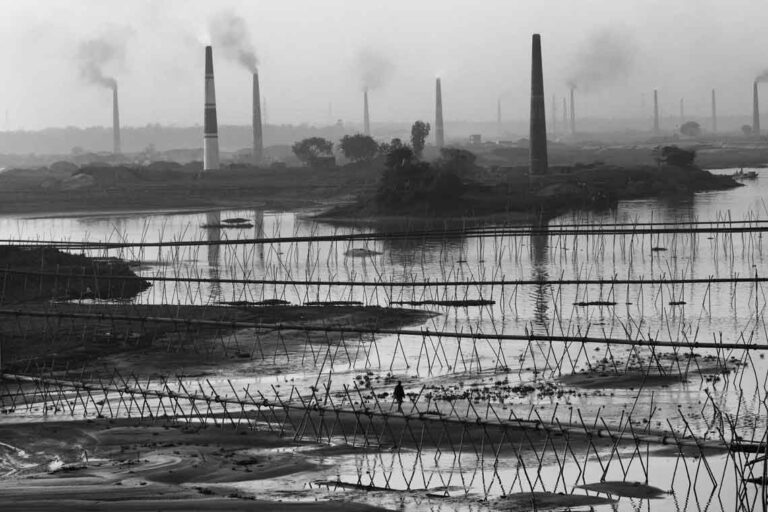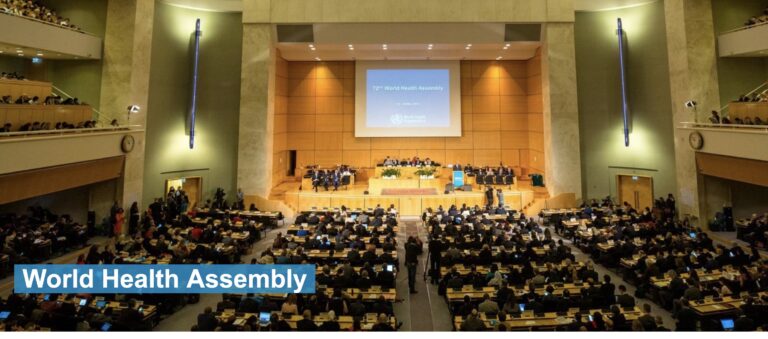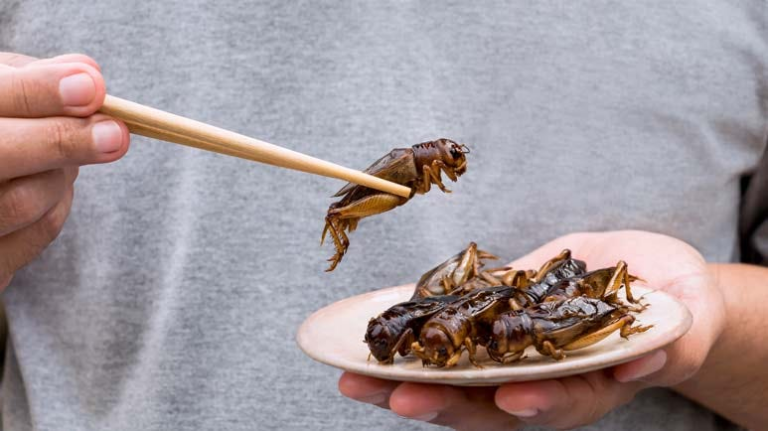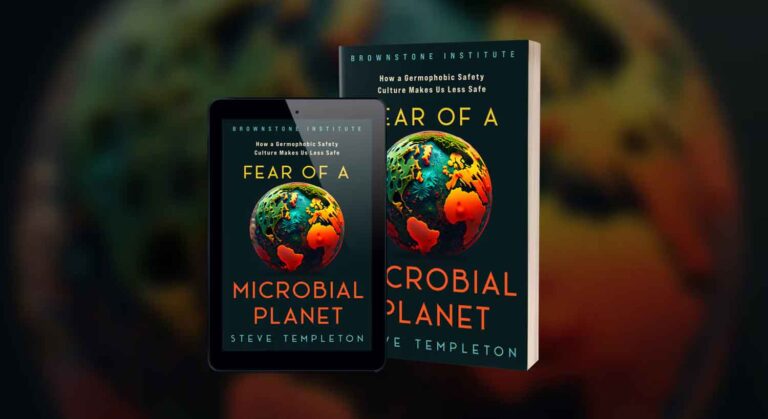This article is a repost with permission from Brownstone Institute.
The Netherlands has been chosen as a pilot area in the EU to be climate neutral with a transition in protein food and a transformation of healthcare into a telemedicine, data, and AI-driven connected system approach led by Public Private Partnerships. A closure of 55-70 percent of traditional farming is foreseen to be replaced by tech-driven vertical farming, gene-edited crops, edible insects, veganism, 15-minute cities and a CBDC passport covering personal health data.
Citizens will pay for the transition by increasing prices for energy, food, healthcare services, and insurance.
A U-turn of these EU-driven policies is highly needed. Health and wealth have been decreasing in the past years due to pandemic measures, inflation, and recently implemented policies. The Netherlands, famous for farming and innovations, can best win this challenge to re-establish healthcare driven by traditional farmers producing nutritious whole food that prevents famine, improves the soil and the immune system for healthy lives.
Dutch Farmers will no longer accept harmful policies
The Netherlands, a small country conveniently situated within the EU, has been economically growing by generations of farming and fishing. In July 2022 the Dutch policies on farming led to the article No farmers No Food No Life.
Large demonstrations initiated by farmers and fishermen took place in July 2022, November 2022, and March 2023 in The Hague and Brussels respectively, which received much attention worldwide.Now, half a year later an even bigger demonstration initiated by Dutch farmers took place on June 29,2023 in The Hague. Farmers and citizens have drawn the line.
The new policies pushed forward by politicians in Rutte IV could be disastrous for farmers and humanity. This will not only affect the Netherlands. Changes in farming in the Netherlands, being the second largest export country for food, will affect many people worldwide.
Last week the negotiations with farmers and agricultural society on the Agriculture Agreement IN MOVEMENT to meet the governmental goals for climate change on CO2 and Nitrogen reduction in 2040 collapsed. In the draft Agreement a 25-30 percent reduction of farmers and cattle and loss of agricultural fields is foreseen in 2035.
It could even be a reduction of 55-70 percent of farmers to transform the Netherlands together with Flanders and North-Rhine Westphalia in one region ‘Tristate city’ “a large green world city with 30 million inhabitants.” This is a concept that was introduced in 2016 as a marketing strategy, established as a place brand, and initiated by the private sector. The concept was found by visiting emerging markets in China. The opinion of thought leaders is that it will be a success, but there is no way of knowing this would be the case.
When the new agreement is signed farmers need to fulfill 122 measures; most of them will not be able to meet them. Farmers are warning that if the eighth EU Nitrogen rule will be forced for the ability to grow vegetables and fruit, it will be impossible to continue farming. This year the use of certain crop protection spreads has become restricted in the Netherlands while other countries are allowed to use it. A 40 percent reduction in yield is expected.
The only way out for farmers seems to be to accept the offer by the government to sell their ownings for 120 percent of the value with a restriction not to be allowed to start another farm within the EU area. Many farmers still refuse the offers made. ‘Even when they pay 400 percent of the value I won’t leave, my son is going to be the next generation farmer.’
The draft agreement does not present information on effects on farmers’ income and consumers’ behavior. The advisory report from Wageningen University and Research (WUR) writes that they cannot advise on this topic as they do not have the information. With the reduction of cattle, farming land and a transition to regenerative farming they will be able to meet the goals on climate change. However, 30,000 jobs will be lost and €6.5 billion of added value.
Remarkably, the role of Rabobank (originally derived from Boerenleenbank, a cooperative owned and run by farmers) which has been pushing investments by farmers for large-scale farming, while knowing for 30 years this strategy could harm the environment, has been kept out of the N2 debate in the Netherlands. A report published by Greenpeace explores the role of Rabobank. The minimum Rabobank (a bank for actively accelerating transitions for food, climate and finance) can do says Greenpeace is to contribute €3.1 billion in the N2 Fund.
A catastrophic power by a Culture of Climate Hysteria
Recently Rob Jetten, the Dutch minister for Climate and Energy Policy presented in parliament the net zero CO2 and nitrogen plan, which will cost €28 billion and would result in a 0.000036 degree Celsius reduction in temperature in 2050. A harmful and unrealistic plan for a problem that even does not exist.
There is no climate emergency, over 500 eminent experts wrote in 2019 in an open letter to the United Nations. A research paper by Skrable et al, in Health Physics in 2022 concludes the increase in total CO2 due to the use of fossil fuels was much too low to be the cause of global warming. Another group of researchers found ice around Antarctica Thwaites Doomsday was eight times thinner around 8,000 years ago.
Furthermore, the Nobel Prize winner in Physics in 2022, John F Clauser, says it is clear; there is no climate crisis. Climate crisis is based on scientific corruption, pseudo-science. Similarly, Greenpeace co-founder Dr Patrick Moore explains in his speeches ‘Carbon dioxide is the currency of life and the most important building block for all life on earth. It is not responsible for global warming. The whole debate on climate change is a fabrication.’
The European Court of Auditors stated in a recent report, ‘It is not clear if the suggested measures will be supportive to meet the climate goals.’ Probably the EU will not be able to meet their sustainability goals to reduce CO2 emission in 2030 by 55 percent. Unfortunately, the EU committed that they will be the first worldwide to be climate neutral. In the near future every EU citizen will have to pay for CO2 emissions via house, car, and company.
Gripped in a culture of climate catastrophism, society seems to allow to rip the work of generations of farmers and thousands of cattle being slaughtered while the real consequences are unknown and threatens us all.
What is also conveniently overlooked in the climate debate against cows is the carbon cycle. CO2 is absorbed by grass during photosynthesis. Cows eat the grass produce methane-which is released into the atmosphere and breaks down into CO2 and H2O. And the cycle repeats itself. Basic biological knowledge that is learned at school and everybody knows. Livestock are highly needed for fertile lands. A healthy soil, the underpinning of cultivation throughout history is created in interaction between grazing animals and soil microbiology. Regenerative agriculture can sequester more carbon than humans are inventing.
A net zero CO2 policy in Sri Lanka has proven to be a disaster and ruined many farmers’ lives. The policy resulted in complete chaos and a setback in health, environment, and economy.
In the Netherlands an increasing number of farmers a year commit suicide; the exact numbers are unknown. According to a recent investigation there was a 37 percent increase in 2020. Families are crying at the kitchen table daily.
Dutch citizens will be financing the €28 billion climate plan by extra taxes on food prices for example on milk products, meat, compounds for vegetation protection, and fertilizers while inflation is high and purchases are expensive.
Also, a prepared law for zero taxes on vegetables and fruits to promote healthy foods supposed to pass for January 2024 seems to make a U-turn. According to a report from SEO Economic Research it will be too complex and too expensive and it is not sure the introduction of this law will promote health. However, keeping taxes on vegetables and fruit will generate €550-950 million in income for government.
Overlooked risks of expensive food transitions
A transition to ‘Food is Medicine’ initiatives is a strong promotion for the necessity to eat fully plant-based (vegan), bio-engineered food, lab-grown meat, and novel foods like edible insects. Fresh whole foods from farmers will be replaced by products derived from vertical farming, food grown in laboratories, and innovative Food Hubs.
According to the many start-ups and initiatives, it is necessary to solve diminishing resources and an insecurity for healthy nutritious and sustainable food for a fast-growing human population to 9 billion people in 2050. A future of food with low-footprint ingredients and technology that will bring a beautiful nature back into balance. A Global Food Forum of young people is accelerating the transition.
The Netherlands is leading this worldwide food transition funded by the private sector-run FoodvalleyNL, the World Economic Forum and Rockefeller Foundation, the EU, and the Dutch government. The secretariat and coordinating centre for various Food Hubs in the world is based at Wageningen University and Research (WUR). In 2050 we will eat less meat, eggs and dairy products and more chickpeas, crickets and chlorella; a movement for everyone, the WUR states.
A McKinsey report ‘Alternative proteins, the market share is on’ states leading alternative protein resources will be plant protein, insect protein, mycoprotein and cultured meat.
It is not a surprise that the world’s largest and leading insect company Protix, producing protein and fats from insects for feed and food for animals and humans, is based in the Netherlands.
The company was founded in 2009 by two consultants from McKinsey and attracted huge amounts of funding. Protix uses high-track control systems, artificial intelligence, genetic improvement programs, and robotics. The company received many awards, among them from the WEF. A circular frontrunner in the greenfield of insect-based foods.
In the EU in the past few years Protix, Fair Insects, and CricketOne, a Vietnam-based company, gained approval for use of insects in human consumption. The growing number of insects authorized in the EU for sale in food including dietary supplements will not be required to carry special labels to distinguish them from other products the EU has confirmed despite protests from MEPs.
Insect protein and fat can be found in products like paste, bread, ice creams, cakes, and more. The argument is that before insects can become a large-scale food product for humans in the Western world, insects should be turned into an appealing product. For several years start-ups in food transition products like hamburgers from cultivated crickets have been supported by the EU and government in the Netherlands.
According to the Dutch Platform De Krekerij is the most sustainable fast food on the planet. One kg of cricket meat uses 85 percent less food, 90 percent less land and 95 percent less water than one kg of beef.
Green gas emission from farming insects would be 100 times lower than those from pigs and cattle. However, a position paper of the Eurogroup for animals says insect farming is a false solution for the EU’s food system. Industrial animal farming for food should be replaced rather than having insect protein as another form of industrial farming.
Although more than 2,000 edible insects caught in the forests or agricultural fields have been consumed for thousands of years all over the world, there is hardly any knowledge on consuming insects cultivated in plastic boxes in fabrics. Impacts on various aspects, governing the cultivating and production methods of insects and issues on upscaling, on health, and the environment have not been investigated in the short and long term. ‘Little is known about the food chain leading edible insects from farm to plate and on their role in human and planet wellbeing says the editorial Edible Insects: From Farm to Fork.
In a report in 2022 the FAO documented possible food safety issues with edible insects. Among them are allergen cross-reactivity, biological safety hazards as bacteria, viruses, fungi as well as chemical contaminants (toxins (myco), PFAS, pesticides, antibiotics, toxic metals, flame retardation, cyanogenic glycosides). Especially for undernourished children and people with a weakened immune system, eating insects might be a risk factor. The EFSA report for CricketOne is warning of a possible negative impact on both the innate and adaptive immune system.
A research paper on edible insects versus meat shows that the content of individual nutrients in both insects and meat varies significantly. Both are rich in nutrients for development and functioning of the human body. Some foods might exacerbate diet-related health problems while others may be effective in treatments. However, studies on eating insect products versus meat on health are still lacking.
Around the myth of cultured meat It remains to be seen whether the production of artificial meat will be enough to be competitive in comparison with conventional meat. It is still in its infancy. Analysis found that lab-grown meat made from cultivated stem cells could be 25 times worse for the climate than beef if current production methods are scaled up because they are still highly energy-intensive.
Another threat for traditional farming in the EU conversation is the industrial lobby owning 10,000 patents boosting the use of gene-edited crops (CRISPR-Cas) as a solution to climate change and biodiversity. Recent research by the EU and the Global Biodiversity Framework are likely to foster the use of CRISPR-Cas as a solution to not only climate change but also biodiversity conversion. Also WUR scientists expect the EU will change the rules this year with smarter governance for the benefits of society and environment.
The debate on gene-editing for crops instead of classical natural crossings for crops is not new and has been used by Monsanto. The use of the gene-edited seeds has been expensive for many farmers. Biological farmers are concerned that farmers will become dependent on multinationals and natural classical solutions will no longer be effective. The balance with nature will be destroyed. Plants are interconnected with soil, animals and humans. The long-term effects of combining various gene-edited plants and foods are not known. Moreover human gene-editing is still controversial and the effects of eating the gene-edited plants and fruits on animals and humans is not known.
It is clear that when evaluating the food transition to veganism, gene-edited plants, soil fertilizers converting biodiversity, increased irrigation technologies, and edible insects, the intended transition has many risks in the short and long term for humans, animals, plants, and the planet.
A ‘rich’ country in famine and lack of care
The Healthcare system in the Netherlands has been ranking for years as the best in Europe. In 2020 the Dutch healthcare system was ranked as the number three most innovative in the world.
Unfortunately, in a country with 17.8 million people, approximately 2 million people do not get the care they need, and 1.2 million people are living below poverty. Around 148,000 citizens visit a food bank. Poverty is expected to rise to 5.8 percent.
In 2021 30.9 percent of men and 35.9 percent of women (age > 16 years) experienced one or more chronic diseases. This is expected to increase to around 7 million in 2030. During the last few years a strong increase in heart problems has taken place, and one in ten persons in the Netherlands experiences heart problems.
After three years of pandemic measures and limited care, healthcare is confronted with a population with an increasing number of elderly people, people with more chronic diseases, rising mental problems, increased feelings of stress, fear, and loneliness, more people dying as expected, shortness of nurses, increased sickness leaves, low salaries, inflation, high prices for energy and food, and more people being undernourished. People are leaving the healthcare system, and 37 percent experience moral conflicts. Doctor visits are replaced by telemedicine or done by people with less professional education.
The number of people on waiting lists for urgent care in nursing homes is increasing and surgeries have been postponed. CEO’s of healthcare organisations have started to hire nurses from Indonesia and India as sufficient Dutch nurses are not available or prefer to work as an independent nurse. In 2032 a shortness of 137,000 nurses is expected. Furthermore, shortness of family doctors (35 -45 percent ) is on the rise. Telemedicine and efforts on the implemention of technological support for big data and AI are pushed forward by the minister of Healthcare.
Large academic hospitals have started AI labs. Personal medical information files will become more easily available among different care organisations and within the EU. Special acute care will be concentrated in fewer hospitals.
CEO’s of healthcare organizations with nursing homes and homes for the disabled have written an open letter to the minister that the current situation will drive organisations into bankruptcy. The risk for Dutch women to become burnt out or lose their paid work to replace with unpaid voluntary care is near.
Prices for mandated private health insurance increase due to inflation. During the pandemic billions have been thrown away for unsafe and ineffective and even harmful measures. But, politicians in the Netherlands don’t see it as a priority to evaluate the policies as they have postponed the pandemic inquiry. Trust in politics in the Netherlands is at an all-time low.
Preventing Famine
It is the UN report that appeared in April 2023 that needs to be on the front page of all media worldwide. “Globally the consumption of animal source foods including, meat, eggs and milk can help to reduce stunting, wasting and overweight amongst children.”
“This is a significant gap given the co-existence of micronutrient deficiencies with overweight, obesity and Non-Communicable Disease.”
At least one in ten people and one in three children worldwide is malnourished. This is presumably much more when various grades of deficiencies are considered. While it is known that most non-communicable diseases can be prevented and restored, it is unacceptable given the co-existence with deficiencies that malnutrition and even hunger and famine may increase when EU policies will be forced into the agriculture and healthcare system in the Netherlands.
The Netherlands owes generations of hard-working farmers and fishermen a solution to the problem of famine and a restoration of lower cost of healthcare. A cooperation between farmers, fishermen, and medical doctors for good nutritious whole food and loving care will be a strategy less costly, safe, better for soil and the immune system, and more successful. This will be the way that needs to be followed to regain trust and wealth.



